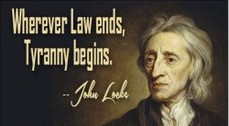Liberalism has brought about unprecedented freedom and prosperity, but is now reviled and misunderstood and wrongly named.
Liberalism, the world’s most successful political and economic system, which in the last few centuries has brought about unprecedented freedom and prosperity to a large part of the world, is now reviled and misunderstood and wrongly named.
Liberalism is a simple philosophy and system. It holds liberty as the highest political good. It believes in the rule of the law; equality before the law; limited, clean, honest, impartial, efficient government; equal rights and opportunities for everyone; and free trade, free enterprise and free markets. If this can be implemented (admittedly a big “if”), freedom and prosperity for all will follow as surely as day follows night. There have been no exceptions in the history of the world.
Liberalism began by accident, like most of the great advances in human history. Britain was its leader. During the Civil War and the Glorious Revolution, which are best seen as a continuous period of revolution from 1642 to 1688, England accidentally became a capitalist country. Capitalism is a natural development of liberalism. During this period, the powers of the king declined and those of parliament grew; property rights were strengthened and broadened; the Bank of England was shortly afterward established and a modern financial system developed (the new king in 1688 was a Dutchman, and Holland happened to have the world’s most advanced financial system). Cromwell, a highly religious man, had sought the Kingdom of Heaven. Instead he got capitalism – which in my opinion is better.
Then followed the Industrial Revolution, which was only possible because of a capitalist financial system, bringing machines and prosperity around the world, vastly improving human health and human well-being. It burgeoned in the 20th Century, increasing longevity from 30 years to 60 years.
After the accidental triumph of liberalism, philosophers such as John Locke gave it theoretical justification and, more important, economists like Adam Smith explained why greedy, self-interested, ambitious people, constrained to work in a free market, could do no other than improve the lot of everyone else while improving their own lot. Under liberalism and capitalism, bad motives produce good outcomes.
This is the main reason why it is so hated by so many people. They are more interested in motives than outcomes. They would rather have selfless people producing poverty than selfish people producing wealth. (In fact socialists are every bit as selfish as capitalists.) This is why so many people support the idea of socialism while simultaneously wanting to live in capitalist countries. Capitalism means the free market and free trade. Socialists don’t believe in either. They want the market to be limited by restrictions laid down by the state, which would be ruled by people like themselves. Socialism is simply state control. The extreme form of socialism is communism, where a small ruling class controls the state, and the state controls the economy.
Communism has bought poverty, tyranny and suffering wherever it has been tried. People always try to move from communist countries to capitalist, and never the other way round. But this doesn’t matter to the people who support the idea of socialism or communism. I don’t know of any political party in the world with “capitalist” in its name. I know hundreds of political parties with “socialist” or “communist” in their names. I have explained why.
The USA has lead the world in abusing the word “liberal”. In the USA, “liberal” means “socialist”. It means belief in state control and unfree trade. It means “illiberal”. It means the exact opposite of what it should mean. Both sides of American politics abuse “liberal” in the same way. True liberals in America now call themselves “libertarians”, which is more-or-less correct although it is a clumsy and unnecessary word, or “conservatives”, which is incorrect.
Even worse, socialists in the USA call true liberals “right-wing”, and worse still some true liberals accept the term. In fact “left” and “right” as political labels are meaningless. You don’t believe me? OK, consider Fidel Castro. He was a big, rich, bourgeois, macho, violent white man who seized Cuba by force, established a dictatorship, persecuted homosexuals, exploited the working classes, made himself one of the richest men in the world while impoverishing the population and caused hundreds of thousands of ordinary people to flee. Is Castro left-wing or right-wing? Is he more left-wing or right wing than Margaret Thatcher, who allowed full democracy and lawful tolerance of homosexuality and extended property rights and freedom to working class people?
In South Africa, for some reason, “neo-liberal” now means what “liberal” used to mean. It is a term of vilification. It accurately describes liberals and capitalists as part of the same system but then goes on to portray capitalism as the fount of all evil, whereas in fact it is the most beneficial and virtuous economic system in history.
Andrew Kenny is a professional engineer, a freelance journalist and a liberal

